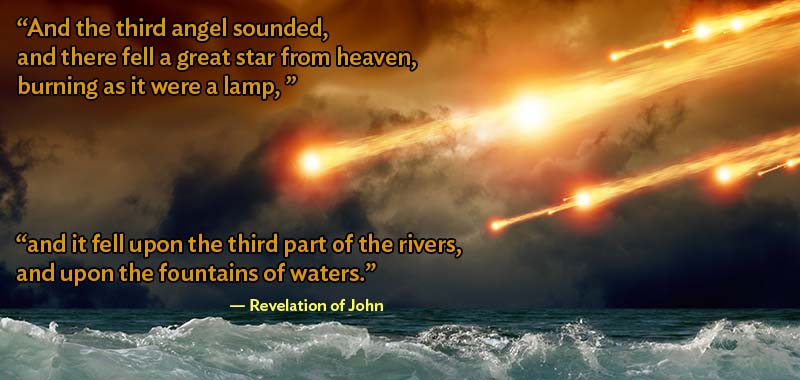Atilla Shrugged
On Evangelicals and Libertarians
How I got in over my head, and how Dostoyevsky saved me.
I’ve always hit it off with Tea Party organizers: “Government has over-reached; people should suffer or enjoy the consequences of their own actions”. I’m down with that, and they actually get Quantitative Easing, which is awesome. But given more time to express themselves, sooner or later they’re dancing in the shadow of the Apocalypse.
Somewhere along the line, the passionate plea for liberation from Jack-Booted Storm Troopers ends up with the Zen Masters of self-interest in charge. The wholesome liberty of Stateless Corporations. I get it that government can get heavy handed, but when we vanquish authority, whose going to keep the boot Monsanto’s neck, anyway?
I ask a few questions and next thing you know they’re snearing …Oh, you’re a Hillery person… and “…so you like the Government thugs, so long as they’re working for you…” Geez, so much for conversation. Being unprepared to follow these battle-hardened veterans into their bunkers, I realized I needed to get a handle on where they were coming from… … and it always seemed to lead back to Ayn Rand.
As a teen, I’d read Ayn’s Sci-Fi novella Anthem: Equality 7-2521 fights back against a crushing authoritarianism; a plot that mapped well to my world-view. I moved on to The Fountainhead
: blowing shit up and having sex with whoever you want and apologizing to no one. It had its appeal. I continued with Atlas Shrugged
, which, somehow I survived; I realize now how easily I could have gone with the Nietzschean line.
I returned to Atlas Shrugged with somewhat of a forensic frame of mind, carefully examining it for evidence that might help unravel the crime scene that our national political economy has become.
I re-read Atlas Shrugged, The Fountainhead, Anthem, Ideal and The Night of January 16th
. I read essays, interviews and biographies; her HUAC testimony, the West Point speech, The Fascist New Frontier attack on John Kennedy, and the whole Sydney Hook thing. I took in Nathaniel Brandon on self-esteem and nonetheless re-read Atlas Shrugged anyway. It was a deep dive. I became aware that there were risks perhaps similar to an undercover narc, of becoming a tweeker myself.
At a time when this project was starting to take over my life, a friend pulled me aside and asked if maybe I wasn’t overdoing it. “Unwind a little”, she said. She gave me a copy of The Brothers Karamazov
, which I’d never succeeded in finishing before. It had an immediate effect on me, an antidote to the Aristotelian drug flowing by then in my veins.
After such a heavy dose of Randianism, The Brothers Karamazov felt like a vacation, but before long, I was back on the case: on the eve of Demtiri Karamazov’s trial for the murder of their father, Ivan falls into a delirium in which he finds himself in conversation with the Devil. From the great distance of generations, Dostoyevsky saw the philosophical underpinnings of who Ayn was to become, and left us some clues on how to understand it all.
I pored over Pushkin and Gogol for context and then took on Crime and Punishment, The Gambler and The Idiot
(my personal favorite). You might imagine my friend’s reaction as I related my discovery: in order to fathom the Tea Party, you have to take in Ayn Rand, and to make sense of Ayn Rand you have to read Dostoyevsky. “Who’s next” she asked “James Joyce?”
Most people seem to think of Dostoyevsky as some sort of storm cloud, but he is really a very funny guy, you just have to give him time. He was the one that got me to understand that Ayn was just cribbing from Revelations with her own Saint John of Galt’s Gulch.
I had been baffled by the improbable Tea Party alliance of Evangelicals and Libertarians until I started looking at it through the lens of Apocalyptics; then it all made sense.
